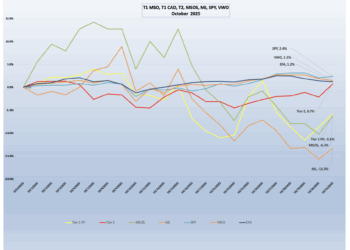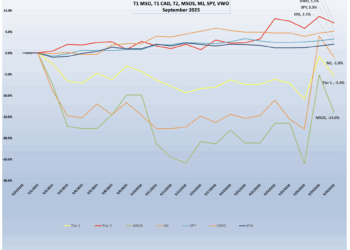When it comes to cannabis-related income, it may have seemed that state tax and treasury departments were the great washing machines of the industry as they have collected billions of dollars in taxes and fees. However, states, just like many cannabis businesses, have also been challenged with banking their state-legal cannabis revenue and have had to “craftily” find a way around banks’ compliance concerns.
It’s no secret that marijuana’s Schedule I status has made business banking extremely difficult. For 10 years, Congress has tried to pass cannabis banking reform. This year, the SAFER Banking Act is the closest it’s ever been to Senate approval. But its chances of getting through a raucous Republican-led House seem to be slim.
Yet, ever since California became the first state to legalize medical cannabis in 1996, states have seemingly been able to bank the taxes, fees and other cannabis-related revenues. California and other states, recognizing the banking problem for businesses, willingly accept cash payments.
In the 18-month period from July 2021 through December 2022 alone, legalized states have collected more than $5.7 billion in excise tax revenue, according to Marijuana Moment, citing U.S. Census Bureau data.
But some federally regulated banks and FDIC-insured state banks that want to avoid onerous compliance requirements and regulator scrutiny are still wary about holding even state accounts of cannabis income.
The issue came to light recently when Rob Scheerer, director of Maryland’s Office of the Comptroller’s Revenue Administration Division, was quoted describing the difficulties of banking the state’s new adult-use tax revenue. Sales started July 1, with over $158.5 million sold at a 9% tax rate in the third quarter.
He said it was a “heavy lift,” requiring a negotiated solution with Maryland’s bank, Wells Fargo.
“We have craftily called this ‘A sale subject to the 9% rate under Senate Bill 516 of 2023,’” Scheerer said, according to Maryland Matters.
When asked for comment by CRB Monitor, a spokesman for the Comptroller of Maryland said, “Wells Fargo Bank provides lockbox and other treasury management services to the State of Maryland, including such services related to the collection of state tax revenue. All due care has been taken by State officials and Wells Fargo to ensure that the collection of the Maryland sales and use tax, and the State’s handling of that tax revenue, complies with applicable laws and regulations. Any inference or assertion that these processes have been designed to evade any applicable laws or regulations is incorrect.”
A spokesperson for Wells Fargo also said they believe the Maryland Matters report was incorrect. He declined to comment further on serving the cannabis industry generally.
West Virginia, Washington faced banking problems
When West Virginia legalized medical marijuana in 2017, it was surprised to learn how difficult it would be to bank revenues. Jared Hunt, assistant treasurer and communications director for West Virginia, said in an email that the “banking functionality of the program was an issue,” when the Medical Cannabis Act was passed.
Chuck Johnson, a partner at Frost Brown Todd law firm in Charleston, said West Virginia’s primary bank balked at taking the revenue.
“The treasurer didn’t know what to do,” he said.
Johnson said he suggested credit unions to the treasurer. Credit unions were willing to set up the extra compliance oversight needed to assure the income collected was legitimate. They charged much higher fees for the services, but it was a workaround.
The legislature then passed a new law in 2019 that allowed credit unions to serve the state and authorized a request for proposals. HB 2538 also created the Treasurer’s Medical Cannabis Fund; allowed the treasurer to charge fees; indemnified financial institutions, the treasurer and staff; and said the state would defend the treasurer and staff in litigation regarding cannabis-related banking.
“Element Federal Credit Union was selected as the most responsible vendor and is the current financial institution used for medical cannabis funds,” Hunt said.
Trey Sunderland, director of cannabis banking at Element, declined to comment citing the credit union’s non-disclosure agreement.
Washington state was originally with U.S. Bank. “But it dumped us several years ago due to cannabis deposits,” said Washington State Liquor and Cannabis Board Communications Director Brian E. Smith.
Smith said Washington then turned to state-chartered Timberland Bank. He said that, to his knowledge, the account has a generic name that doesn’t say cannabis. “But the bank is aware of what is being deposited.”
Other states handle cannabis revenues differently
CRB Monitor reached out to all the states that have operating medical or adult-use tax programs asking how they bank their cannabis-related revenues and with whom. More than 10 of them replied with at least some information, revealing that states handle their revenues differently. Many still use mainstream federally regulated banks.
Some states, such as New Mexico and Maine, commingle cannabis revenues with the general fund.
Through September 2023, the New Mexico Taxation and Revenue Department has distributed more than $47 million in Cannabis Excise Tax revenue to the state’s general fund and to local governments, according to a press release. New Mexico’s fiscal agent is Wells Fargo, a spokesperson said.
“The State of Maine does not segregate the indirect funds received from marijuana licensing fees and sales tax,” said Treasurer Henry Beck in an email. “There is no formal agreement or selected bank with regard to these specific indirect funds, either for immediate depositing once collected, or long-term placement, or placement in CDs or other investment vehicles. We do use a number of depository banks depending on branch location, need, agency etc.”
Johnson said that approach is risky. He explained that if authorities go after a bad-actor business, they could go after the funds deposited into that general fund account too.
Other states have managed to work out arrangements with mainstream banks with cannabis tax accounts clearly identified.
Illinois uses INB and JP Morgan Chase for cash collection of cannabis taxes. Electronic tax collection goes through Wells Fargo.
“We are glad to be able to provide this service,” Illinois State Treasurer Michael W. Frerichs said in an email. “But compliance costs and continued regulatory uncertainty make it more difficult to procure these contracts.”
California’s Department of Tax and Fee Administration uses Bank of America, Bank of the West, Chase Bank, Citibank, U.S. Bank, Wells Fargo and Westamerica for its bank accounts. A spokeswoman said the department doesn’t make deposits at specific banks based on the tax revenue stream but assigns revenues to their appropriate funds as spelled out in the laws that established them. For the cannabis program, the fund is named the Cannabis Tax Fund.
Montana deposits cannabis sales taxes into the Cannabis State Special Revenue Account at U.S. Bank.
Oregon banks with Key Bank, and Arizona banks with Bank of America. Spokespeople for those states did not respond to follow-up questions seeking more details about how cannabis funds are held.
In Pennsylvania, the Medical Marijuana Program Fund has been established as a separate fund known as Fund 217. All bank accounts used for Fund 217 are standalone accounts. The state uses PNC Bank, BNY Mellon and Fulton Bank.
“The goal of maintaining segregated accounts is to avoid any commingling of moneys in the unlikely event of a federal action,” said Erik Arneson, Pennsylvania deputy treasurer for communications, in an email.
Other states, like Washington and West Virginia, have turned to state-chartered banks and credit unions to handle their cannabis funds. Oklahoma has a contract with state-chartered BancFirst to take medical marijuana-related payments, a spokesperson said.
State treasurers seek solutions
Some state treasurers are actively working toward banking reform to help both businesses and state and local governments.
Back in 2016, when California legalized adult-use, then-State Treasurer John Chiang put together a working group to study the problem. Expert panelists from California public agencies, financial services and the cannabis industry provided hours of testimony during a December 2016 hearing that described the “dangerous, disruptive disconnect” between state and federal laws.
“The disconnect not only adversely affects governments seeking to collect taxes, cannabis businesses seeking to use traditional financial services and the banks that might wish to provide those services,” said a press release. “The disconnect also puts cannabis workers and business owners at risk of being harmed and bankers at risk of going to prison.”
Current California State Treasurer Fiona Ma was on that task force and has supported state banking legislation. Her media team did not respond to an email asking for comment.
Maine’s Treasurer Beck said, “We strongly urge Congress and federal regulators to take prompt action to give cannabis business legal under state law clear access to banking services necessary for their internal operations and interaction with customers, government agencies and vendors.”
Illinois Teasurer Frerichs supports updating banking rules that threaten financial institutions with closure if they do business with the cannabis industry, including state legislation and the SAFER Banking Act. He’s worked with other state treasurers through the bipartisan National Association of State Treasurers to promote “common sense laws” to provide essential banking services to state-legal cannabis businesses.
“We have a system that says it is OK for some people in the United States to use cannabis, but it is not OK for those in the cannabis industry to use banks and credit unions to write checks, access loans, and deposit money. That defies common sense,” Frerichs said. “Legitimate business owners should not have to operate underground on a cash-only basis and make themselves vulnerable to crime, fraud, and tax evasion.”












